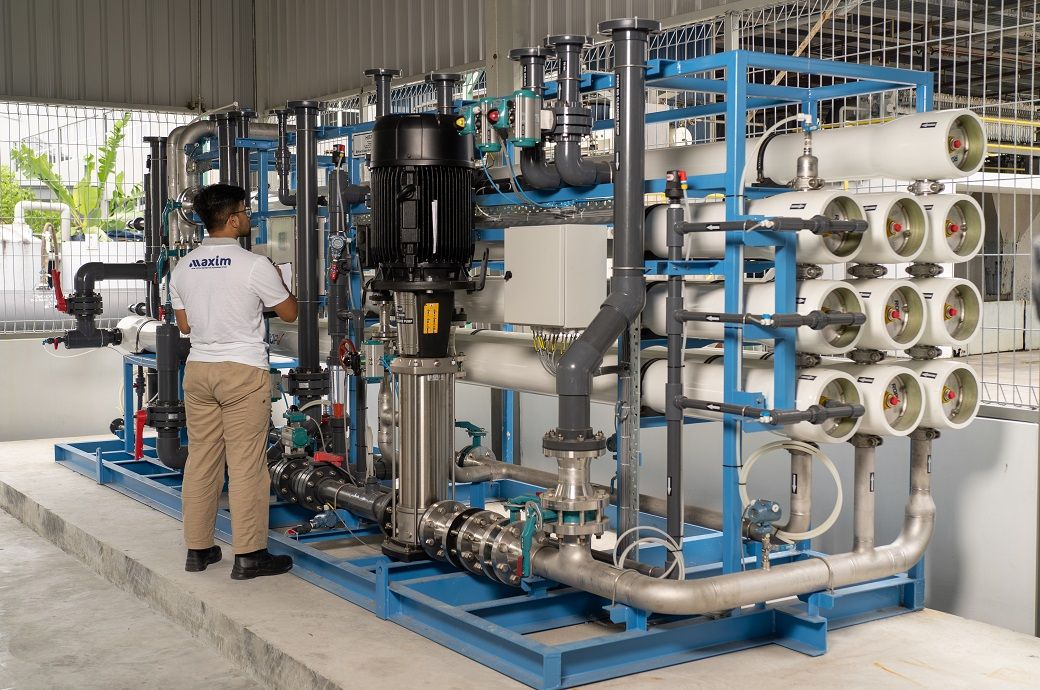
Maxim’s strategy focuses on green procurement and production, and to ensure eco-friendly product development, a safe working area, and to demonstrate the best social responsibility in the work environment to employees and stakeholders, the company chose OEKO-TEX STeP certification, Maxim said in a press release.
“It improves our credibility and trust with customers, increases customer loyalty, reduces operation costs, improves employee satisfaction, and enhances our company reputation in the worldwide market,” the company said in a statement.
Important steps taken to increase sustainability include the installation of a complete reverse osmosis (RO) water system, which helps to reduce 50 per cent of the water usage in daily operations. Furthermore, a chemical management committee has been set up in the facility which is focused on sourcing and promoting green chemistry for laboratory and production. All chemical purchases go through RSL/MRSL assessment including sample approval before they can be approved for use in the facility.
During the STeP certification process Maxim came across some challenges, the major one being chemical and environmental management. This was due to the production and use of chemicals which can have significant environmental consequences, including greenhouse gas emissions, water pollution, and land degradation. Its solution was to communicate with business partners by sharing their sustainability goals and action plan. The company collaborates with business partners and stakeholders by focusing on green procurement to eliminate the use of materials that have a negative impact on the environment. In the meantime, Maxim is developing guidelines for internal and sustainable purchasing options for committees, buyers, and business partners. TESTEX provided the best guidance during the certification process.
Since the incorporation of the OEKO-TEX STeP initiative, the company has witnessed a variety of favourable shifts. There has been a notable improvement in social responsibility practices within the facility, fostering higher levels of satisfaction among employees and customers alike. Concurrently, process costs have seen a reduction, paired with safer manufacturing work conditions. The initiative has also facilitated increased machine capacity utilisation which has further improved the quality of products. Harmony has become a characteristic feature of the work environment, ensuring fewer hospitalisations for the workforce. Furthermore, these beneficial changes have embellished the firm’s reputation on a global scale, highlighting its commitment to responsible practices and quality assurance. This comprehensive approach has proven pivotal in steering the company towards a path of enhanced efficiency and global recognition, added the release.
The STeP assessment required Maxim to provide the data in more detail than other platforms. Through the STeP certification progress, the facility can identify the gap in each area and needs for improvement or implementation. Further goals include improving air emission quality and environmental performance. To help achieve these goals, the Impact Calculator has been used and the action required for improvement could be identified from the carbon footprint report. Maxim also plans to introduce the OEKO-TEX Made In Green label.
“Being certified by OEKO-TEX STeP has helped us to expand our market based on sustainable transparency, as well as to convince customers of the reliability of the company’s products. This programme also helped us to identify areas of weakness, improve our operations and social labour management to enable us to remain competitive in the market. The increased trust and confidence from stakeholders and customers ensure that Maxim will pursue its goals towards a sustainable world,” said general manager Mah Chin Fatt.
Fibre2Fashion News Desk (NB)